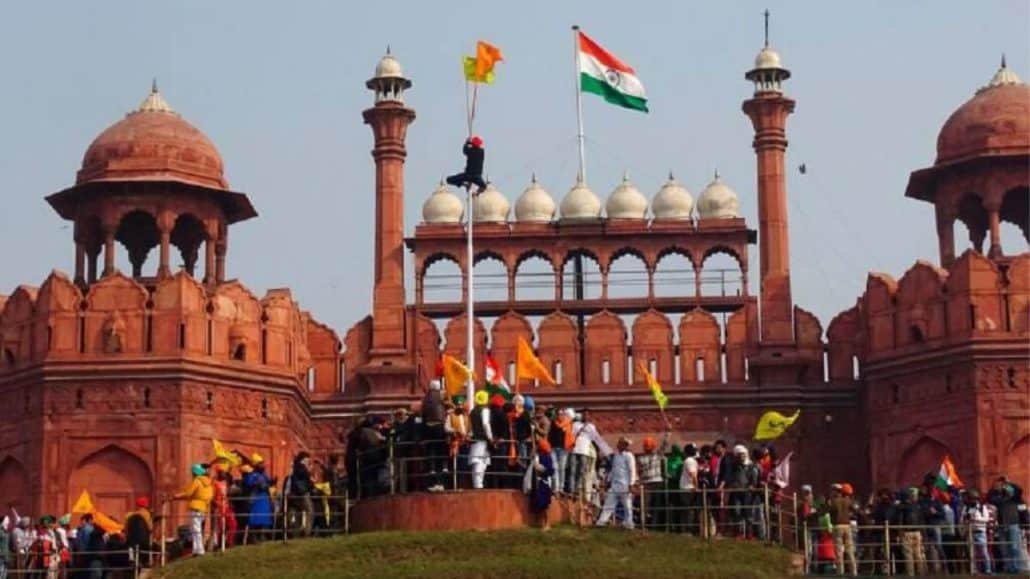Farmers protesting against new agriculture laws in India have broken through police barricades around the capital and entered the grounds of Delhi’s historic Red Fort, in violent scenes that outshine the country’s Republic Day celebrations.
Police hit protesters with batons and fired teargas to try to disperse the crowds after hundreds of thousands of farmers, many on tractors or horses, marched on the capital on Tuesday. One protester was confirmed to have died in the clashes and dozens of police and protestors were injured.
Mobile internet services were suspended in parts of Delhi and some metro stations closed. As the clashes continued into the afternoon, home minister Amit Shah met with Delhi police to discuss how to get the protests under control.
Standing on the ramparts of the Red Fort was Diljender Singh, a farmer from Punjab, who held aloft the Nishan Sahib, the flag of Sikhism.
“We have been protesting for the last six months but government didn’t bother to listen to us, our ancestors have charged this fort several times in history.
This was a message to government that we can do it again and more than this if our demands are not met.” Singh said.
Some protesters reached a junction about two miles from where the prime minister, Narendra Modi, and other government leaders watched tanks and troops parade past and fighter jets fly overhead. Modi waved to crowds and was driven back to his residence before any personal confrontation with the farmers, the biggest challenge his Hindu nationalist government has faced in its six years in power.
Jaspal Singh, 50, a farmer from Gurdaspur district in Punjab, said nothing would break the resolve of the protesting farmers. “No matter how much force the Modi government uses we are not going to succumb,” he said. “The government is trying to give a bad name to farmers by planting their men among the protesters to do violence. But we are going to take this agitation ahead peacefully.”
• Agriculture employs more than 40% of India’s population but it is a sector plagued by poverty and inefficiency, with farmers often selling their crops
for one rupee. Rates of farmer suicides in India are among the highest in the world.
• Farmers say their situation has been ignored for decades and that the changes, aiming at bringing private investment into agriculture, will only put farmers at the mercy of large corporations.
• The farmers say the new laws were introduced with no consultation and have demanded their complete repeal. Nine rounds of negotiations with the government have failed to reach an agreement.
• The issue has now been raised with the supreme court, which suspended the laws and established a special committee to attempt to sort the deadlock. However, farmers’ leaders said they would not cooperate with the committee, accusing the panel of being too pro-Modi.
• Last week, farmers rejected an offer by the government to suspend the laws for 18 months, saying they would settle for nothing other than a complete repeal.
The storming of the Red Fort prompted outrage from politicians who had been supportive of the farmers’ cause. Amarinder Singh, chief minister of Punjab, urged farmers to vacate Delhi. “Shocking scenes in Delhi,” he said in a tweet. “The violence by some elements is unacceptable. It will negate goodwill generated by
peacefully protesting farmers.”
Samyukta Kisan Morcha, who represents over 40 farmers’ unions, condemned those who had taken part in the clashes and said that “anti-social elements had infiltrated the otherwise peaceful movement.
We condemn and regret the undesirable and unacceptable events that have taken place today and dissociate ourselves from those indulging in such acts.
